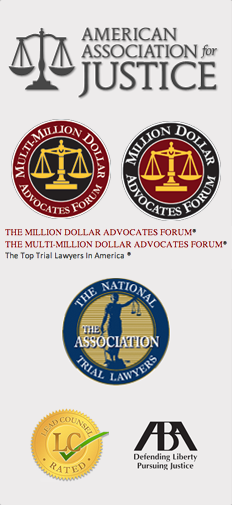A recent study by the U.S. Centers for Disease Control and Prevention suggested that there has been no significant decrease in the number of children born with cerebral palsy.
Statistics showed that 2.2 out of 1,000 children born in 2002 were diagnosed with congenital cerebral palsy. This represents only a slight rise from the 1.9 out of 1,000 children born in 1985 who were diagnosed with the same condition. The same research also showed that no significant trends appeared when considering infants born with spastic cerebral palsy.
While the infant survival rate has improved with advances in medicine and care, the prevalence of cerebral palsy diagnoses has still not gone down. The authors of the research, including Kim Van Naarden Braun of the National Center on Birth Defects and Developmental Disabilities, wrote that “the absence of decline underscores the continued need for resources and support of children with CP and their families, as well as accelerated focus on understanding risk factors, targeting prevention strategies and reducing disparities.”
If your child suffers from cerebral palsy as a result of any medical malpractice during labor, please contact our brain injury lawyers at the Driscoll Firm today by calling (800) 900-7704 to learn how we may be able to help you pursue compensation you need to provide the care he or she needs.
Cerebral palsy (CP) is a permanent movement disorder that begins during early childhood. It is caused by damage to or the abnormal development of the area of the brain responsible for balance, posture, and movement. Cerebral Palsy can manifest in several different ways, including:
- Ataxic Cerebral Palsy – a person with ataxic cerebral palsy suffer from poor muscle tone and poor; people with ataxic CP may appear shaky and unsteady
- Athetoid Cerebral Palsy – with athetoid cerebral palsy, some muscle tone may be too low and some may be too high; people with athetoid CP have a hard time staying in an upright position, and faces, arms, and the upper body can make random, involuntary gestures
- Spastic Cerebral Palsy – a person with spastic cerebral palsy usually suffers from muscle tone that is too high, resulting in stiff and jerky movements due to the tightness of the muscle tone; people with spastic CP have difficulty in moving to and from different positions or letting go of things in their hand
- Mixed Cerebral Palsy – occurs when the muscle tone is too low in some areas and too high in others
If you believe that your child’s cerebral palsy is the result of negligence on the part of another party, do not hesitate to discuss your case with our dedicated, experienced team at The Driscoll Firm. Call us today at (800) 900-7704.
Spastic cerebral palsy is a condition in which increased muscle tone causes arms and legs to stiffen or become rigid. This type of cerebral palsy is usually a result of damage to the brain’s white matter or gray matter. It limits the full potential of the involved extremities because of the inability to systematize movements. People with spastic cerebral palsy may also suffer from impaired fine and gross motor coordination, muscle weakness, fatigability, and increased deep tendon reflexes. Spastic cerebral palsy may affect the body in a variety of ways:
- Hemiparesis – spasticity occurs on one side of the body
- Quadriparesis – spasticity occurs in all four limbs
- Spastic diplegia – spasticity occurs in both legs
If untreated, spastic cerebral palsy may lead to permanent limitation of joint movements.
Researchers have linked a number of causes to the occurrence of cerebral palsy; one such cause is doctor error during child birth. Infants who are injured or the victims of other forms of negligence during delivery can develop cerebral palsy that will last their entire lives. If you or your child has been diagnosed with cerebral palsy as a result of a medical professional’s negligence, contact the Driscoll Firm at (800) 900-7704 today.


